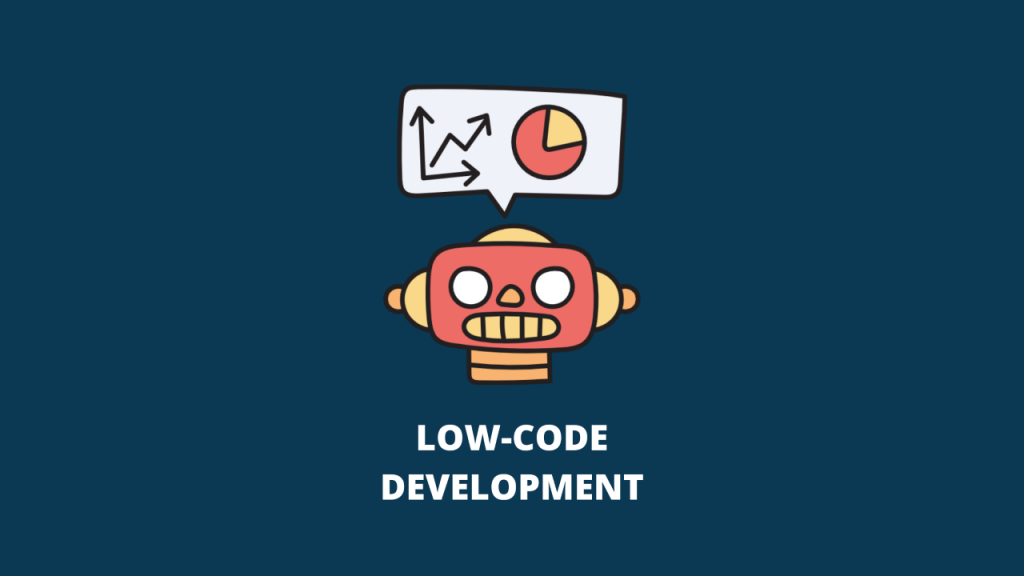Explore the choice between RPA and Low-Code for your automation needs. Make informed decisions to optimize efficiency and productivity. Choose wisely!
Robotic Process Automation (RPA) has emerged as a prominent solution for automating repetitive tasks within enterprises. These automated processes offer a streamlined way to handle routine operations. However, there’s another contender in the field of automation that deserves equal attention: Low-Code Process Automation.
Understanding Robotic Process Automation (RPA)
RPA is a technology that enables the automation of manual tasks that are often mundane and repetitive. By programming virtual bots, organizations can delegate routine actions such as data filtering, data migration, and form completion. This technology aims to free up human workers to focus on more valuable and strategic tasks.
Some Robotic Process Automation (RPA) Examples:
- Customer Order Processing
- Transferring Data from one system to another
- Insurance Claims Processing
- Account Reconciliation
- Patient Appointment Scheduling
- Customer complaints processing
- Payroll Processing
- Straight-through processing of customer orders
Exploring RPA’s Mechanics: From Programmed Bots to Intelligent Automation
RPA involves using programmed bots or intelligent bots. Programmed bots follow predefined rules set by programmers, while intelligent bots utilize artificial intelligence to learn and perform tasks. These bots mimic human actions, enabling them to work independently after learning from user interactions.
Advantages and Limitations of RPA
The Pros of RPA
- RPA excels at automating specific parts of tasks across different business units.
- Its user-friendly design makes implementation for simple tasks a swift process.
- RPA’s 24/7 operation and elimination of human errors contribute to its appeal.
Efficiency, Replicability, and Time Savings are some advantages of using RPA.
The Limitations of RPA
- RPA’s strength lies in automating individual tasks, but it falls short when it comes to end-to-end process automation.
- It struggles with adaptability to changes and maintaining compatibility with legacy systems and complex interfaces.
- Routine maintenance and security concerns also require IT oversight.
Introducing Low-Code Process Automation
Low-Code Process Automation takes automation to the next level by allowing the reimagination of entire processes. Unlike RPA, it’s not limited to legacy systems. It enables the creation of new applications, enhancement of existing ones, and integration with various simple and complex systems.
Low-Code Process Automation empowers both technical and non-technical users to collaborate on automation initiatives. With user-friendly interfaces and drag-and-drop functionality, it enables the realization of diverse automation projects across business units.
Choosing Between RPA and Low-Code: When and Why
Picking the Right Tool: RPA vs. Low-Code
The decision between RPA and Low-Code depends on the scope of automation needed. RPA is suitable for automating basic, repetitive tasks, while Low-Code development shines when dealing with complex processes, enterprise-wide automation, and application development.
RPA and Low-Code: A Dynamic Duo for Enhanced Automation
Both RPA and Low-Code have their strengths, and they can complement each other. For example, Low-Code can enhance RPA’s capabilities when dealing with legacy systems, unstructured data, or more comprehensive process automation needs.
Why Low-Code Wins
Low-Code Process Automation offers a forward-looking approach. It can adapt to changing business needs, scale with your organization’s growth, and facilitate cross-departmental collaboration. Its flexibility and sophistication make it an investment in the future of process automation.
Conclusion
The choice between RPA and Low-Code Process Automation depends on your organization’s needs and aspirations. While RPA is ideal for specific task automation, Low-Code’s adaptability, versatility, and capacity for collaboration make it the future-focused choice for comprehensive process automation.
Explore unparalleled efficiency and productivity with DEW Studio’s cutting-edge automation tools. Whether you’re a business professional or an IT expert, our platform helps you create, customize, and deploy automation solutions tailored to your unique needs.
Planning for Long-Term Success? Opt for Low-Code. Start a free trial for your journey towards smarter automation!



